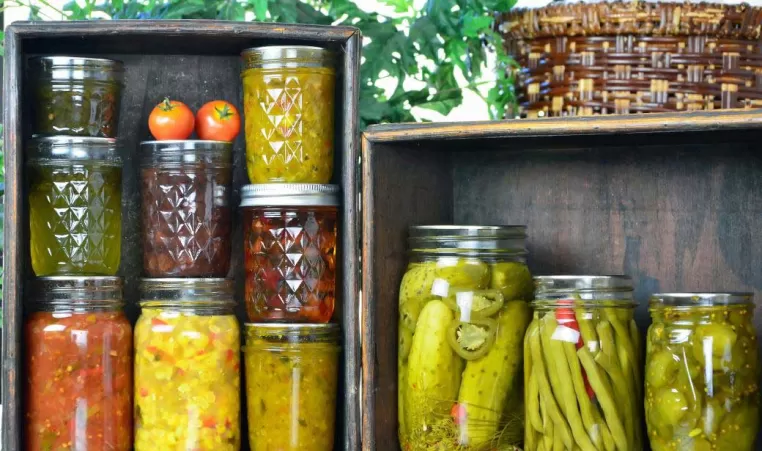The Joys of Canning

By Susan Hickey
What is the first thought that comes to mind when you think of “canning?” Old-fashioned? Little House on the Prairie? Feelings of overwhelm? Well, it’s none of those things. Today’s canning is relatively simple and a great way to save money by preserving foods you grow yourself, or by taking advantage of sales on in-season produce to stock up. Canning also appeals to today’s generation because in this age of chemicals and food allergies and eating organic, canning one’s own food is a good way to ensure you know exactly what goes into it to make it as healthy as possible.
The great thing about canning is that everything is reusable once you invest in it, except the lids, which for safety reasons are one-time use only. You can also consider a “canning kit,” which would contain most, if not all, of these items together, possibly at a less expensive price.
Canning requires just a few items:
- Glass jars
- Lids
- Bands
- Canning funnel
- Lid lifter
- Jar lifter
- Canner. Depending on the type of food, you might be able to use a water bath canner, but for certain foods, a pressure canner is required. This type of canner can reach 240 degrees Fahrenheit – which is necessary to kill bacteria.
When planning to try canning, use an approved recipe like those found in the Ball Complete Book of Home Preserving. These recipes are tested for safety in terms of the level of acidity of the foods. While canning is a simple process, it is imperative to follow instructions exactly to ensure safe preserving. Simple items to can include beans, tomatoes, pickles, jams, and salsas. Additionally, a larger of items to can are suggested on Ball’s website www.freshpreserving.com .
3 Easy Steps to canning:
- Pick your produce (and enough of it to make it worth your time)
- Prep: Wash/sterilize your jars, bands, and lids
- Process: Submerge the filled jars in boiling water (or in a pressure canner)
It’s really not as complicated as you might think. It saves money in the long run and helps your family eat less processed foods and stay healthy. Maybe put a canning kit on your Christmas list and start planning your garden for next year!
Susan Hickey is a part-time physical therapist and SAHM of 3. Susan and her family are Coffman YMCA members.
